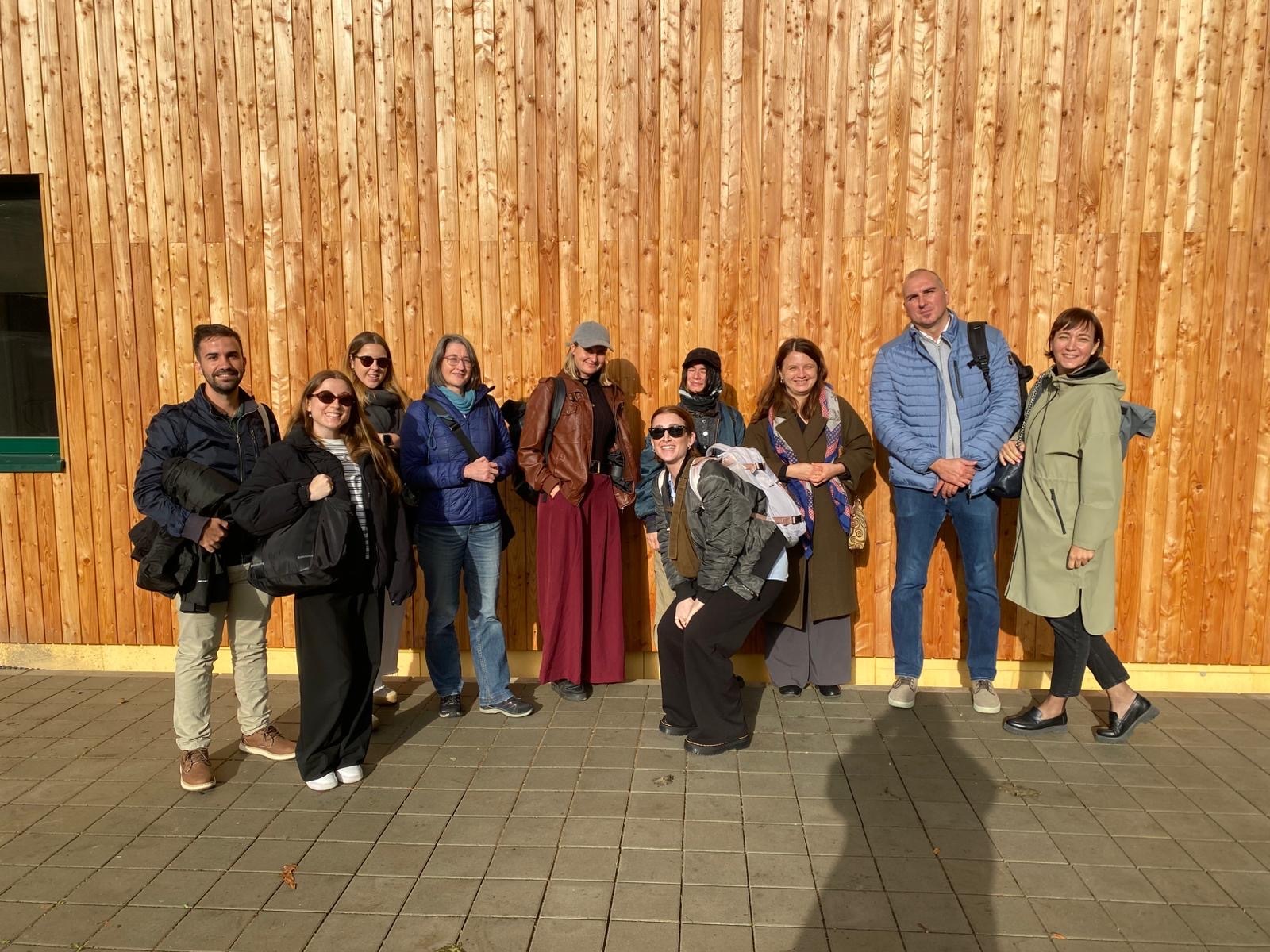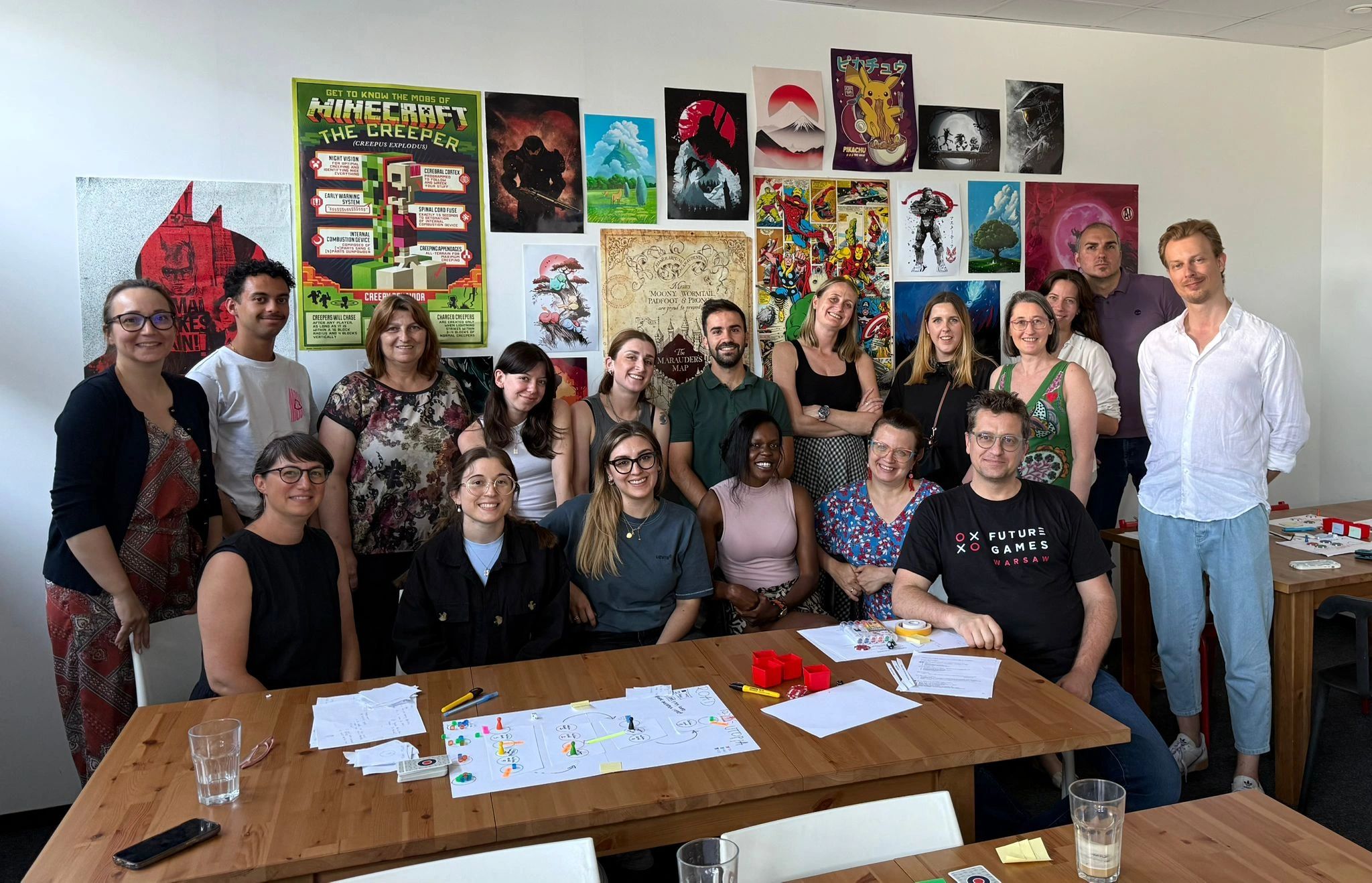
- Date: 2025-10-31
1. social entrepreneurship education programme, including lesson plans;
The main objective of this package is to develop a much-needed and still missing comprehensive social entrepreneurship education programme for young people. The programme will consist of three outputs: 1) a survey on social entrepreneurship education practices in different countries in Europe, 2) a social entrepreneurship education programme and 3) 18 lesson plans to develop social entrepreneurship among students.
(also known as social economy) is a sphere of civic activity that combines economic activity with public benefit activities. In this way, it serves, among other things, the professional and social integration of people at risk of social marginalisation, the creation of jobs, the provision of social services of general interest (for the general interest) and local development. In simplest terms, social entrepreneurship is an activity with the human being at its centre. Often a weaker person, struggling with various difficulties, in need of our support. It is also an activity in which cooperation, the ability to listen to others and solidarity play a key role. This is where the social economy has unique knowledge and expertise to offer the education sector.
Association for Social Cooperatives - project leader. A non-governmental organisation with almost 20 years of experience. We act for the development of social economy. In doing so, we focus on innovation and intersectoral cooperation. We are constantly looking for new solutions to old problems, and we are convinced that it is the social economy that has the gift of bridging across divides, taking into account different perspectives and responding to the challenges of the world around us. We employ over 30 people in two offices - in Poznań and Konin. Since 2010 we have been running the Wielkopolska Social Economy Centre, since 2015 WOES has been accredited by the Ministry of Family and Social Policy as a high quality OWES.
The project Better Cooperate! is a project combining the fields of education and social entrepreneurship in the activities of....
The project Better Cooperate! Education through and to the values of the social economy as a way to reinforce the society is a project combining the fields of education and social entrepreneurship in the activities of . Its aim is to increase the capacity of the social economy sector to carry out educational activities in the field of social entrepreneurship and thus to formulate an effective response to the challenges of the modern world and to increase the initiative and entrepreneurship of young people and their effective inclusion in the social and professional life of their societies.
Social entrepreneurship education programme, including lesson plans
An educational package including, among others, MOOC courses, an online game, a board game and a good practice database related to student entrepreneurship
A new model for student cooperatives and a guide to best practice – the project will also set up at least six new youth initiatives combining entrepreneurial and social objectives.
We will carry out these activities in an international partnership (Italy, Sweden, Germany, Spain, Serbia) and with the participation and support of local stakeholders (teachers, researchers, educators, local authority representatives) and the ultimate recipients of our activities, namely young people. Project duration: 1.11.2023 r. – 31.10.2026 r.
The main objective of this package is to develop a much-needed and still missing comprehensive social entrepreneurship education programme for young people. The programme will consist of three outputs:
The main objectives of the programme are:
The main objective of this work package is to develop a social entrepreneurship educational kit for the final beneficiaries – young people (in particular serious games and board games), as well as for the intermediate beneficiaries (in particular MOOC courses and a knowledge repository) of the project. Its objectives will be:
The objectives of this work package are:
Social entrepreneurship (also known as social economy) is a sphere of civic activity that combines economic activity with public benefit activities. In this way, it serves, among other things, the professional and social integration of people at risk of social marginalisation, the creation of jobs, the provision of social services of general interest (for the general interest) and local development. In simplest terms, social entrepreneurship is an activity with the human being at its centre. Often a weaker person, struggling with various difficulties, in need of our support. It is also an activity in which cooperation, the ability to listen to others and solidarity play a key role. This is where the social economy has unique knowledge and expertise to offer the education sector.

Project leader. A non-governmental organisation with almost 20 years of experience. We act for the development of social economy. In doing so, we focus on innovation and intersectoral cooperation. We are constantly looking for new solutions to old problems, and we are convinced that it is the social economy that has the gift of bridging across divides, taking into account different perspectives and responding to the challenges of the world around us. We employ over 30 people in two offices – in Poznań and Konin. Since 2010 we have been running the Wielkopolska Social Economy Centre, since 2015 WOES has been accredited by the Ministry of Family and Social Policy as a high quality OWES. We are a member of the National Committee for the Development of the Social Economy operating at the Ministry of Family and Social Policy. We have created more than 2,000 jobs for people at risk of social exclusion, including people with disabilities. We regularly cooperate with the Poznań City Hall (education-related activities) and the Wrocław City Hall (socially responsible public procurement).We cooperate with organisations from all over Europe – in 2017-2020 alone, we implemented 7 international projects under the Erasmus+ programme
Futuregames has been providing education for more than 25 years and has educated several thousand people in the games, technology and creativity, gaming, technology and creative industries. Our journey started in Stockholm, Sweden, and today we have six hubs in Sweden(Stockholm, Gothenburg, Malmö, Boden, Skellefteå, Karlstad) and one hub in Norway (Nordreisa), and we are currently activating new training courses in Poland and Norway. We are developing new training courses in Poland and collaborating with a school in New Zealand. Futuregames is the brand for our games education and we have been recognised as the second best games school in the world by The Rookies. As of September 2022, Changemaker Educations is part of Academedia, the largest education company in Europe with schools at every level of education. Futuregames identifies future competence and skills needs in the labour market and designs innovative and effective educational programmes and courses. Our past students are now professionals in the gaming, communications, IT, web development, e-commerce, and organisation/leadership industries, including in Sweden, Norway, Denmark, Germany, Poland, UK, France, Australia and Malaysia. Over the years, more than 250 teachers and guest lecturers have worked at our schools.More than 300 companies are connected to our education through former students, teachers and joint projects.

Exeo Lab is a multifaceted, flexible young company that envisions a sustainable society. Exeo Lab works to demonstrate that local development is key to attracting projects, skills, opportunities and community development networks. Exeo Lab is a partnership of policy professionals whose founding members have more than a decade of experience in consulting services for public and private entities in consulting services for public and private entities. It specialises in territorial research and analysis through innovative tools and technologies to support policy design for public administrations at national and regional level, especially in innovative and emerging sectors. In addition, Exeo Lab provides SMEs and innovative start-ups with advanced business development, investment strategies, technology transfer and R&D.
The main objectives and areas of specialisation include

Open University Subotica (OUS) is one of the leading institutions for adult education and cultural events in Serbia. Open University Subotica is an institution with many years of experience in adult education and lifelong learning process through the organisation of education, courses, seminars, workshops, training, public debates, research activities and creation of policy documents. OUS has worked for decades to improve the cultural life of the city, the country and the region by organising film screenings, seminars, workshops, public debates and the creation of strategic documents for the region through the organisation of film screenings, theatre performances, exhibitions, cultural education activities, music events and publishing activities. The organisation of two major festivals is the culmination of a commitment to culture: Subotica International Children’s Theatre Festival and the European Film Festival Palić. The Open University of Subotica is the executive
producer of both festivals and is thus responsible for the organisation of all festival activities, including the main programme as well as accompanying activities such as workshops, seminars, round tables, book promotions, scientific forums, know-how exchange, music programmes, presentations, etc. This year, OUS will be organising the 30th edition of both festivals.
The main objectives and areas of specialisation include
The Comparative Research Network (CRN – www.crnonline.de) was founded in 2007 and has since been active in the areas of non-formal adult education, youth and vocational education and training. The activities of the CRN are divided into three vertical areas: research, education and publication. The research department aims to bring the social sciences to the public. Research areas include: European Borders, Civic Participation, Urban Issues, Peacebuilding and Intercultural Dialogue, Diversity and Citizen Science. We work on local projects in Berlin with migrants on co-creating concepts of social inclusion. CRN specialises in civic education and participation, cultural heritage, digital and media skills, storytelling, intercultural skills, green education, game-based learning and creative social entrepreneurship, among others.
The Union of Teaching Cooperatives of the Region of Murcia, UCOERM, is the representative organisation of the cooperative education enterprises in the Region of Murcia.
Its aim is to promote co-operative education and encourage the development of innovative and quality educational projects, as well as to defend the interests and rights of education co-operatives and promote their social recognition and contribution to society.
UCOERM’s activities include promoting worker cooperatives in the education sector as a socially responsible way of doing business, seeking to contribute to the creation of quality employment, social cohesion and sustainable development, as has been demonstrated in other economic sectors.
Some of the most significant institutional services that Ucoerm carries out on behalf of its members:
Education Cooperatives represent almost 50% of the totality of the existing Concerted Education Centres in the Region of Murcia. The Union represents a total of 62 cooperatives, of which 54 are state-subsidised schools providing compulsory education from 3 to 16 years of age; some of them also provide Secondary Education and Vocational Training (Secondary School, Intermediate, Higher and Basic Vocational Training).

